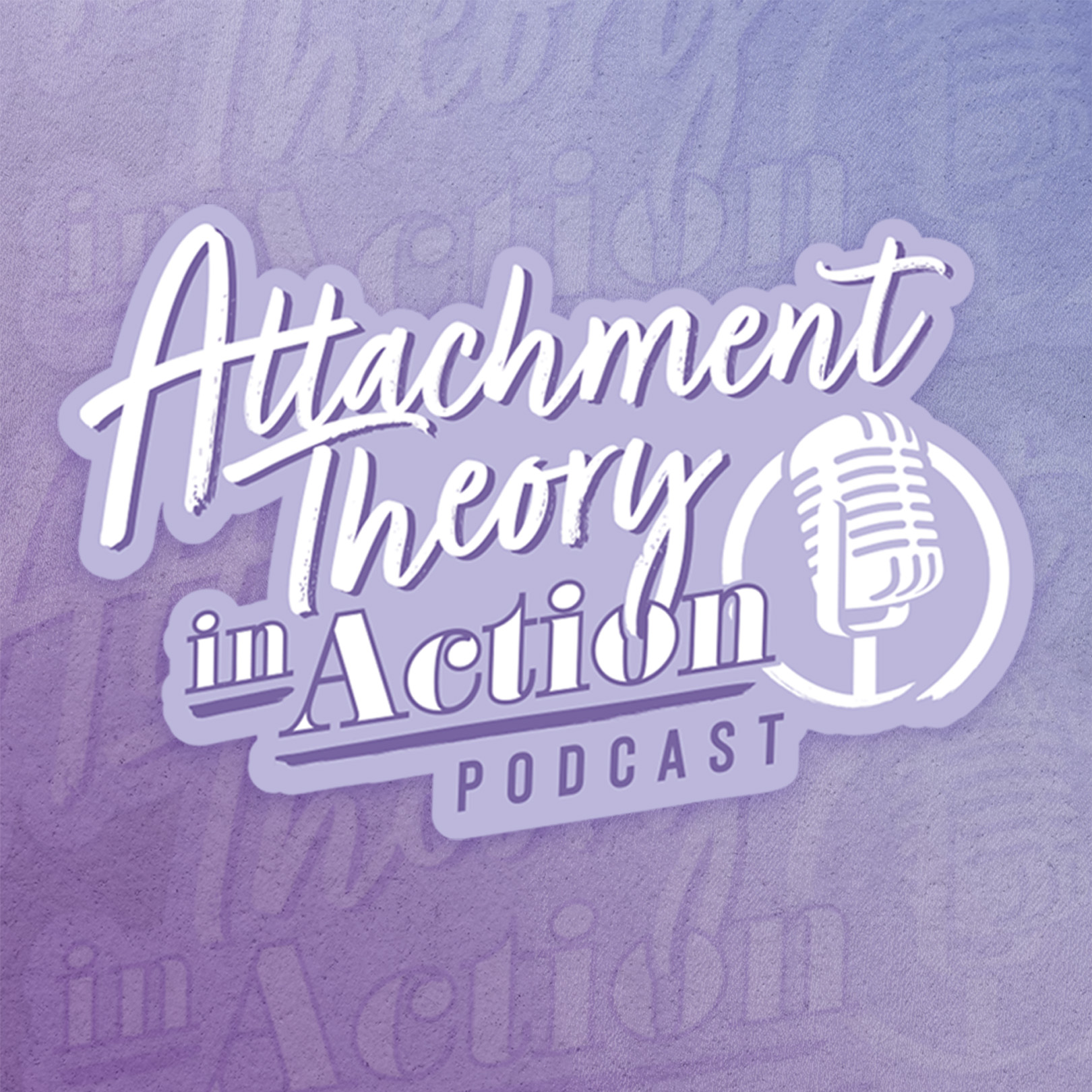
If you work with kids, families, or clients impacted by trauma, you’re in the right place.
The Attachment Theory in Action Podcast is your go-to podcast for real conversations about trauma, attachment, and making a meaningful difference in the lives of those you serve.
Every other week, host Kirsty Nolan sits down with experts in attachment, trauma, and child development to talk about the stuff that really matters—how trauma shapes behavior and development, how to build stronger relationships, and how to bring these insights into your daily work.
Looking for practical tips you can actually use? Wondering how to better support your clients? Curious about the latest research in attachment and trauma? We’ve got you covered.
With nearly 2 million downloads, over 300 episodes, and a loyal community of listeners, the Attachment Theory in Action Podcast helps professionals like you grow and learn—all in under an hour, every other week.
Whether you’re a therapist, counselor, social worker, parent, or simply someone who cares deeply about helping others, this is a space for learning, growth, and inspiration. Hit follow, and let’s dive into the work that changes lives.
The Attachment Theory in Action Podcast is brought to you by Chaddock. Chaddock equips thousands of educators, clinicians, and helping professionals on the latest trauma-informed, attachment based strategies. Visit www.Chaddock.org/learn to learn more.
Want to jump behind the mic and share your expertise? Visit AttachmentTheoryInAction.com to fill out our form to be a guest.
If you work with kids, families, or clients impacted by trauma, you’re in the right place.
The Attachment Theory in Action Podcast is your go-to podcast for real conversations about trauma, attachment, and making a meaningful difference in the lives of those you serve.
Every other week, host Kirsty Nolan sits down with experts in attachment, trauma, and child development to talk about the stuff that really matters—how trauma shapes behavior and development, how to build stronger relationships, and how to bring these insights into your daily work.
Looking for practical tips you can actually use? Wondering how to better support your clients? Curious about the latest research in attachment and trauma? We’ve got you covered.
With nearly 2 million downloads, over 300 episodes, and a loyal community of listeners, the Attachment Theory in Action Podcast helps professionals like you grow and learn—all in under an hour, every other week.
Whether you’re a therapist, counselor, social worker, parent, or simply someone who cares deeply about helping others, this is a space for learning, growth, and inspiration. Hit follow, and let’s dive into the work that changes lives.
The Attachment Theory in Action Podcast is brought to you by Chaddock. Chaddock equips thousands of educators, clinicians, and helping professionals on the latest trauma-informed, attachment based strategies. Visit www.Chaddock.org/learn to learn more.
Want to jump behind the mic and share your expertise? Visit AttachmentTheoryInAction.com to fill out our form to be a guest.
Episodes
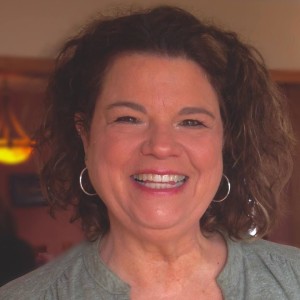
Tuesday May 05, 2020
Mary McGowan: The Impact Being Born Blind Has On A Person's Attachment - Part 1
Tuesday May 05, 2020
Tuesday May 05, 2020
Karen Doyle Buckwalter welcomes Mary McGowan of ATTACh to the show for part one of their discussion on how being born blind can affect a person's attachment relationships. Part two will be released on Tuesday, May 12th.
Mary McGowan holds a Bachelor of Science in Psychology with minors in Community Violence Prevention and Child Development from Metropolitan State University, and a master’s candidate in Counseling and Psychological Services from St. Mary’s University of Minnesota.
Mary has led the Association for Training on Trauma and Attachment in Children (ATTACh) in Minneapolis, Minnesota since 2011. She has served as a post-adoption specialist for North American Council on Adoptable Children (NACAC) doing successful grass roots recruitment for foster and adoptive families for 10 years. She has earned accolades as the National Education Manager for the Professional Association of Treatment Homes (PATH) and is an experienced trainer who teaches and consults locally and nationally.
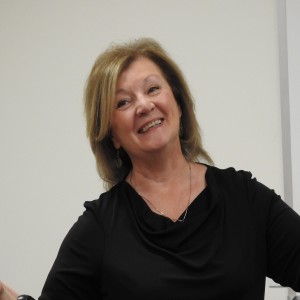
Tuesday Apr 28, 2020
Dr. Lark Eshleman: How Attachment Relationships Aid in Trauma Treatment - Part 2
Tuesday Apr 28, 2020
Tuesday Apr 28, 2020
Karen welcomes Dr. Lark Eshleman to the show to conclude their two part discussion about how attachment relationships aid in trauma treatment.
Lark Eshleman, PhD, is Executive Director of the About Child Trauma Foundation, an educational non-profit teaching about and researching the short- and long-term effects of early emotional trauma, and the power of building resilience in young learners. She is a former school librarian, elementary school principal, and school psychologist, and is a Doctor of Psychology, specializing in child development, attachment, and developmental trauma.
Dr. Lark is on a select committee of the Pennsylvania Department of Education to shape the criteria for required trauma trainings in PA schools, is a special consultant to the State of Delaware’s foster care system, among other training and consultation work. In 2003 she wrote one of the first books on attachment trauma – Becoming a Family: Promoting healthy attachments with your adopted child -- and writes for Fostering Families Magazine, among other magazines and journals. Most recently she and Jane Gordon, Art Therapist, created and published a “coloring in pairs” coloring book – Color Me Closer – which helps bring people emotionally closer through partner-coloring.
Her passion is learning and teaching about the critical nature of healthy beginnings for our youngest Loved Ones. Her very favorite role in life is with her family.

Tuesday Apr 21, 2020
Dr. Lark Eshleman: How Attachment Relationships Aid in Trauma Treatment - Part 1
Tuesday Apr 21, 2020
Tuesday Apr 21, 2020
Karen welcomes Dr. Lark Eshleman to the show as they launch a two part discussion about how attachment relationships aid in trauma treatment. Part 2 will be released on April 28th.
Lark Eshleman, PhD, is Executive Director of the About Child Trauma Foundation, an educational non-profit teaching about and researching the short- and long-term effects of early emotional trauma, and the power of building resilience in young learners. She is a former school librarian, elementary school principal, and school psychologist, and is a Doctor of Psychology, specializing in child development, attachment, and developmental trauma.
Dr. Lark is on a select committee of the Pennsylvania Department of Education to shape the criteria for required trauma trainings in PA schools, is a special consultant to the State of Delaware’s foster care system, among other training and consultation work. In 2003 she wrote one of the first books on attachment trauma – Becoming a Family: Promoting healthy attachments with your adopted child -- and writes for Fostering Families Magazine, among other magazines and journals. Most recently she and Jane Gordon, Art Therapist, created and published a “coloring in pairs” coloring book – Color Me Closer – which helps bring people emotionally closer through partner-coloring.
Her passion is learning and teaching about the critical nature of healthy beginnings for our youngest Loved Ones. Her very favorite role in life is with her family.
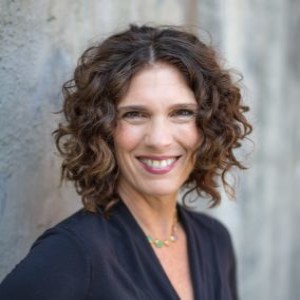
Tuesday Apr 14, 2020
Tuesday Apr 14, 2020
Karen Doyle Buckwalter welcomes Dr. Meg Van Deusen of Seattle back to the show for part one of their discussion on how modern culture is creating barriers to human attachment
After spending a few years as a teacher, Dr. Van Deusen chose to return to school to study psychology. Her studies took her all the way up the Pacific Coast, starting at the California School of Professional Psychology in Los Angeles and finishing her post-doctoral hours in Seattle's Family Services, and then entering private practice in 1994. Since then, Dr. Van Deusen has cultivated an approach to treatment that encompasses years of hard work and dedication to continuing education. She has consulted on external projectsand has a blog on a topics she’s passionate about, stress, loneliness, sleep and anxiety. Her new book Stressed in the U.S. Twelve Tools to Tackle Anxiety, Loneliness, Tech-Addiction and More was released December, 2019. She is a member of the American Psychological Association and the Washington State Psychological Association.

Tuesday Apr 07, 2020
Tuesday Apr 07, 2020
Karen Doyle Buckwalter welcomes Dr. Meg Van Deusen of Seattle back to the show for part one of their discussion on how modern culture is creating barriers to human attachment. Part two will be released on Tuesday, April 14th
After spending a few years as a teacher, Dr. Van Deusen chose to return to school to study psychology. Her studies took her all the way up the Pacific Coast, starting at the California School of Professional Psychology in Los Angeles and finishing her post-doctoral hours in Seattle's Family Services, and then entering private practice in 1994. Since then, Dr. Van Deusen has cultivated an approach to treatment that encompasses years of hard work and dedication to continuing education. She has consulted on external projectsand has a blog on a topics she’s passionate about, stress, loneliness, sleep and anxiety. Her new book Stressed in the U.S. Twelve Tools to Tackle Anxiety, Loneliness, Tech-Addiction and More was released December, 2019. She is a member of the American Psychological Association and the Washington State Psychological Association.

Tuesday Mar 31, 2020
Dr. Meg Van Deusen: Coping With the Stress of COVID-19
Tuesday Mar 31, 2020
Tuesday Mar 31, 2020
In a special one-off episode, Karen welcomes Dr. Meg Van Deusen to discuss how to cope with the stress surrounding the current COVID-19 pandemic. Dr. Van Deusen will also be Karen's guest in the next two weeks of Attachment Theory in Action as they discuss her book Stressed In The U.S.
After spending a few years as a teacher, Dr. Van Deusen chose to return to school to study psychology. Her studies took her all the way up the Pacific Coast, starting at the California School of Professional Psychology in Los Angeles and finishing her post-doctoral hours in Seattle's Family Services, and then entering private practice in 1994. Since then, Dr. Van Deusen has cultivated an approach to treatment that encompasses years of hard work and dedication to continuing education. She has consulted on external projects and has a blog on a topics she’s passionate about, stress, loneliness, sleep and anxiety. Her new book Stressed in the U.S. Twelve Tools to Tackle Anxiety, Loneliness, Tech-Addiction and More was released December, 2019. She is a member of the American Psychological Association and the Washington State Psychological Association.
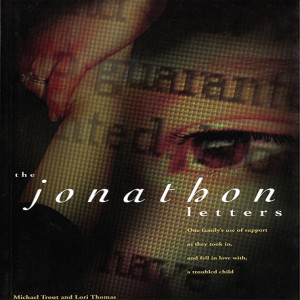
Tuesday Mar 24, 2020
Michael Trout & Lori Thomas: The Jonathon Letters - Part 2
Tuesday Mar 24, 2020
Tuesday Mar 24, 2020

Tuesday Mar 17, 2020
Michael Trout & Lori Thomas: The Jonathon Letters - Part 1
Tuesday Mar 17, 2020
Tuesday Mar 17, 2020
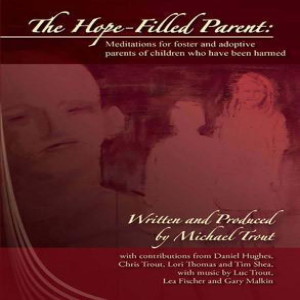
Tuesday Mar 10, 2020
Michael Trout & Lori Thomas: Meditations for Foster & Adoptive Parents - Part 2
Tuesday Mar 10, 2020
Tuesday Mar 10, 2020

Tuesday Mar 03, 2020
Michael Trout & Lori Thomas: Mediations For Foster & Adoptive Parents - Part 1
Tuesday Mar 03, 2020
Tuesday Mar 03, 2020
